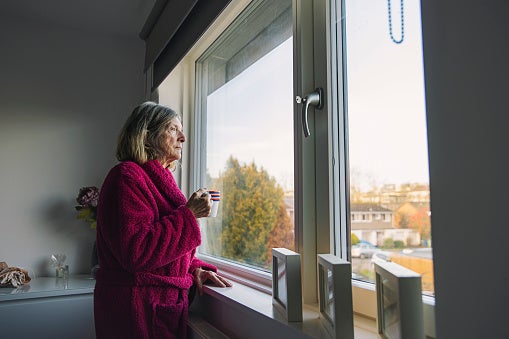Fears of long-Covid crisis as demand for rehabilitation services surges
Demand for occupational therapy soared by more than 80 per cent in six months, survey finds

Health officials are calling for urgent intervention from the government to meet the steep surge in demand for occupational therapy in the wake of the Covid-19 pandemic.
According to healthcare professionals from both the NHS and the private care system, demand for occupational-therapy-led rehabilitation services in Britain has increased by a staggering 82 per cent over the past six months alone.
Swelling pressure on already “overloaded” rehabilitation services has stirred up stark warnings from members of the Royal College of Occupational Therapists (RCOT), who say the level of demand for the service they provide “isn’t sustainable” as there isn’t a large enough workforce to meet the need.
A revealing survey carried out by the college has raised grave questions about the prospect of providing timely rehabilitation for people recovering from short and long-term illnesses who need urgent support to enable them to carry out their daily activities.
The survey of of 550 occupational therapists working in the UK found that 84 per cent are now supporting people whose needs have become more complex because of delays in treatment brought about by the pandemic.
As a result of this, coupled with a wider increase in the number of people requiring help, 71 per cent of the RCOT’s respondents felt there were not enough occupational therapists to meet the demand.
Meanwhile, 66 per cent reported difficulties in delivering rehabilitation services because of reduced access to facilities and a lack of suitable space and equipment.
Much of the blame has been laid at the door of “inaction” in tackling the long-term effects of contracting coronavirus.
Layla Moran MP, chair of the all-party parliamentary group on coronavirus, has accused the government of “bury[ing] their heads in the sand” in the face of the long-Covid crisis.
Her comments relect the findings of the survey, which revealed that 50 per cent of occupational therapists are having to support people affected by lasting Covid symptoms.
She said: “These new findings clearly show that the long-term impacts of the virus, including long Covid, are exacerbating many of the challenges that occupational therapists are facing both in the NHS and beyond.
“Healthcare professionals are bearing the brunt of UK government inaction, and as long as ministers bury their heads in the sand and refuse to address the growing long-Covid crisis, our economy and essential services will be under even greater strain.
“They must commit more money for research and funding, and recognise the condition as an occupational disease.”
Commenting on the survey, RCOT’s director of practice and innovation, Karin Orman, said: “It’s clear from this survey that rehabilitation services across the UK are overloaded, with the vast majority of occupational therapists seeing a huge increase in demand and complexity of their caseload over the last six months alone. This simply isn’t sustainable and there isn’t a big enough workforce to currently meet demand.
“Across the UK, health and social care leaders need to invest more in rehabilitation services and drive the recruitment of more occupational therapists as a matter of urgency. Not in a few years, but now.
“As leaders of rehabilitation services, occupational therapists are a vital part of the solution to getting through the backlog of people needing intervention.
“The maths is simple – the quicker people have access to rehabilitation services, the better their chances at getting back to doing the things they need and love to do.”







Join our commenting forum
Join thought-provoking conversations, follow other Independent readers and see their replies
Comments